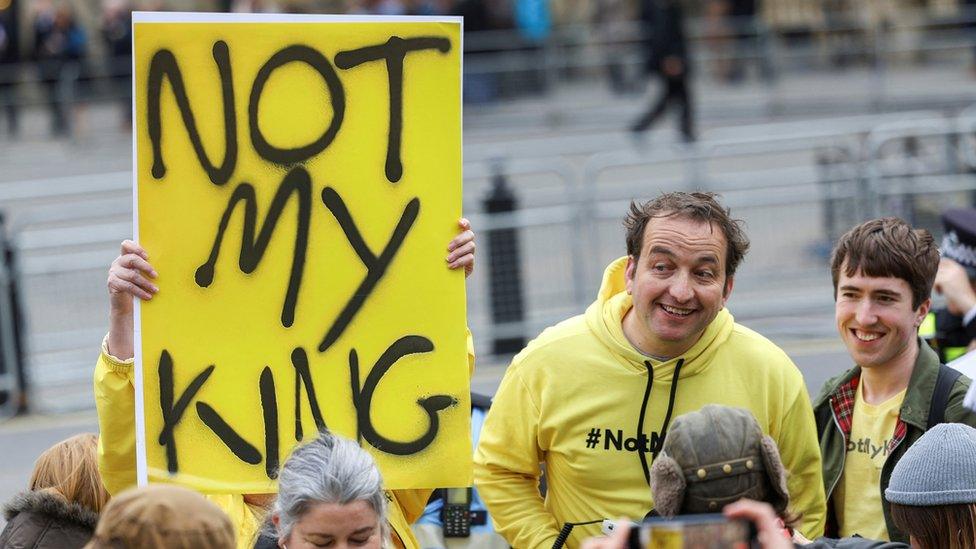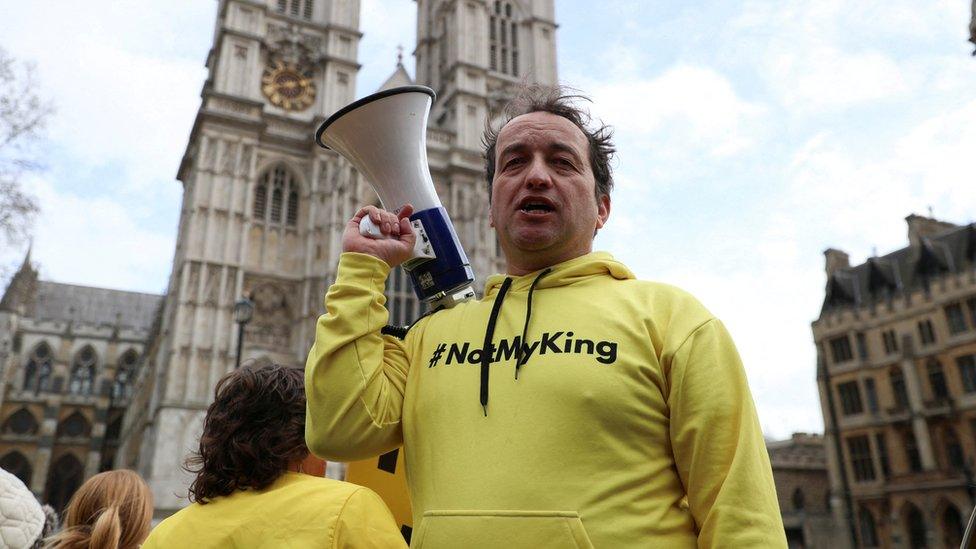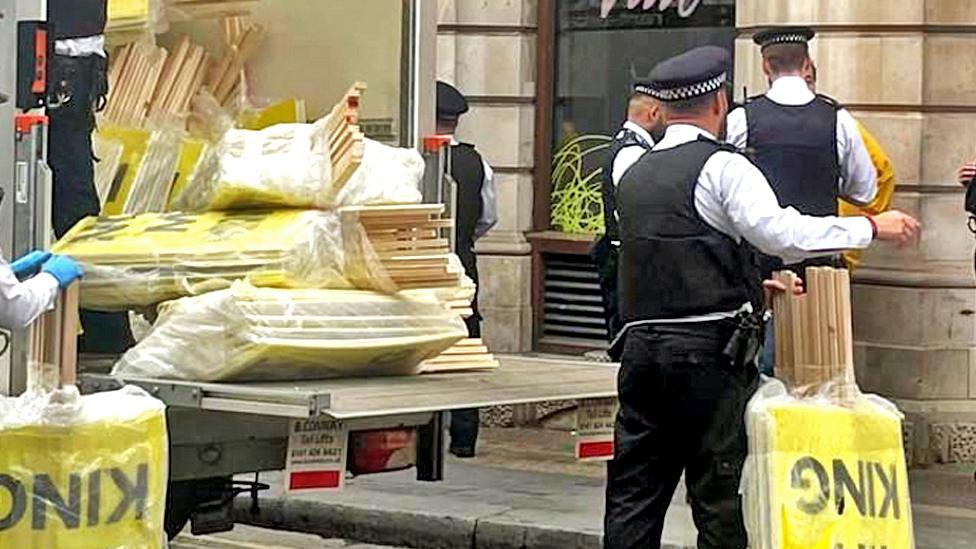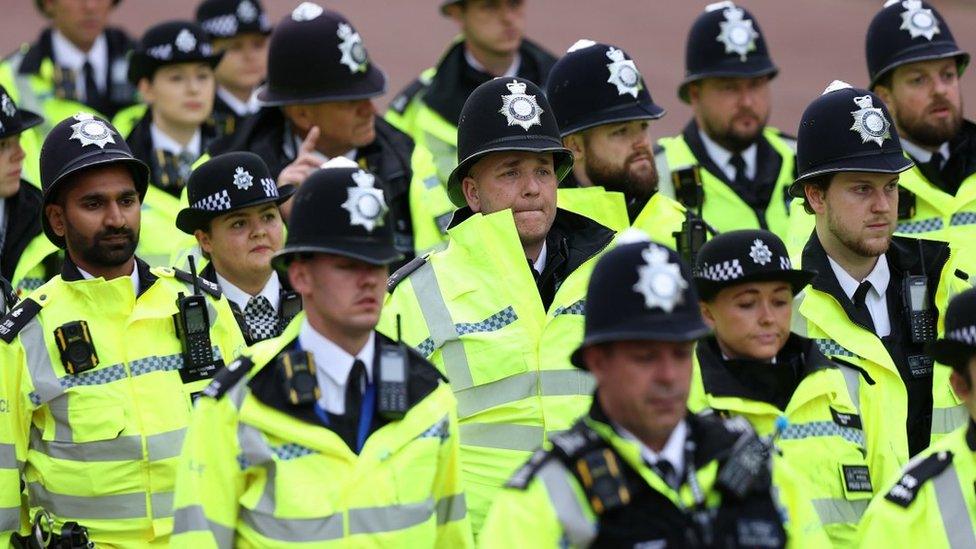Coronation arrests: Republic leader Graham Smith takes legal action
- Published

Graham Smith at a protest before May's coronation
A republican protester detained on the day of King Charles' Coronation is taking legal action against the Metropolitan Police.
Graham Smith, the head of anti-monarchy campaign group Republic, held discussions with officers ahead of the demonstration and claims there was no justification for his arrest.
The case may be seen as a legal test of new powers given to police this year.
The Met confirmed it was aware of legal action but declined to comment further.
Mr Smith has asked the force for an apology while applying for a judicial review on the decision to detain him and five other demonstrators.
The Met has previously expressed "regret" over the arrests.
But the Republic chief executive also wants officers to admit the arrests were unlawful and is seeking damages and costs.
The six members of Republic were held on suspicion of going equipped to 'lock on' - a tactic some protesters use to make themselves difficult to move - because they were in possession of luggage straps to secure their placards.
Mr Smith, who was held for more than 14 hours, had discussed the planned demonstration for four months with senior Met staff.
He claims to have been physically prevented from calling the Met's designated liaison officer when he was stopped and arrested on 6 May 2023. Two days later, the group were told no further action would be taken.
Mr Smith called the arrests "an appalling attack on the rights of peaceful protesters" and on Tuesday told BBC News that he felt it was "part of a deliberate effort to diminish and disrupt our protest".
"I have no doubt senior officers intervened and sought to minimise the impact our protest may have had", he argued.
"They certainly had no grounds for arrest or detention, and no grounds for suspecting intent to lock on."
Officers were also strongly criticised for alleged heavy-handedness over other arrests linked to the coronation.
In legal documents seen by the BBC, Mr Smith argues that officers had "no reasonable grounds" to suspect him of committing any offence, particularly because of his "extensive communication and cooperation" with police.
The papers also suggest that the arrest breached parts of the Human Rights Act and the officer who detained Mr Smith "did not reasonably believe" it was necessary.
The group were detained after new legislation came into effect days before the event that created new offences of locking on or going equipped to lock on, under the Public Order Act.
But Mr Smith told the BBC that the straps for securing placards "were neither intended nor capable of locking on, and the law requires suspicion of intent".
The Metropolitan Police's response, seen by the BBC, says Mr Smith was "suspected, on reasonable grounds, of committing an offence".
It says Mr Smith's human rights were not infringed upon and that his arrest was believed to be "necessary".
In a statement, Scotland Yard said: "We can confirm that a Judicial Review Claim has been issued and it would be inappropriate to comment on ongoing proceedings."
The Home Office declined to comment.
- Published6 May 2023

- Published17 May 2023

- Published12 May 2023
